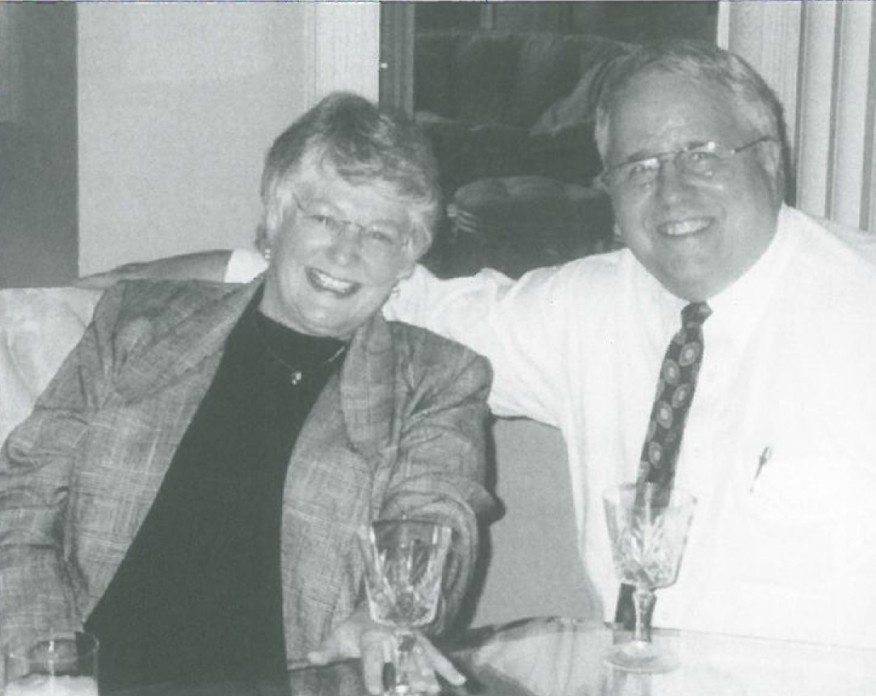Virginia Koster earned her M.S.W. from the University of Michigan School of Social Work in 1976, but that was far from the end of her education. According to Koster, her time at the School of Social Work was "the beginning of my education. I did not leave... feeling finished. It just opened the world to me. My education here opened doors and possibilities, and taught me how to ask questions, find answers, and be self-reliant. I left here feeling like I had some tools and some abilities, and that it was up to me to apply those."
Koster describes herself as someone who enjoys being challenged, and cites that as a theme in her career. She pursued her M.S. W.
after a ten-year break in her education, during which she married, had two children, and worked at agencies as a case manager and case worker. Her career spans twenty-five years, during which she worked as a psychiatric social worker in community mental health and hospital settings doing clinical work, program development, and administration. Most recently, she worked at Chelsea Community Hospital as the Administrator of Behavioral Health Services (1995-2000) and Director of the Partial Hospital Program (1984-1994).
"My field placements at the School were at Huron Valley Child Guidance Clinic in Ann Arbor, and at the federal prison in Milan-two
very different placements!" she says, and describes both placements as challenging in their own ways.
"I was the first woman to work in the substance abuse unit in the Milan prison. I worked with male prisoners who were mostly in
for trafficking drugs. At the federal prison, I learned something that I have always remembered: if you want to punish a prisoner, don't let them work. That was a profound thing for me to learn ... the value and importance of work and the meaning that it gives to people in their lives. I have always taken that with me, particularly working with mentally ill people, that a lot of them are denied the opportunity for meaningful work and what it means to say to people 'There's no place for you to make a contribution.'"
Her career was characterized by her belief in continuing education and accepting new challenges, philosophies that she has carried into
her retirement.
"My plan to sit around and eat bon-bons during retirement hasn't really worked out," she jokes. "I'm the president of the Alumni Board of Governors (at the School), as well as an elder at First Presbyterian Church. I am doing a fair amount of consulting and contractual work. I'm working with the Community Mental Health Affiliation of Southeastern Michigan in three counties (Washtenaw, Livingston, and Lenawee). I am writing the proposal for the Medicaid application for funding for next year-the funding for those three counties is dependent on the application, so it's a huge job."
She has been an adjunct faculty member at Eastern Michigan University since 1993, where she teaches the mental health theory and
practice class and some of the field instruction seminars. "I love clinical practice," Koster says. "I really missed that as I got more into
management. I think that teaching was a way for me to stay connected with the field. I am so impressed with the commitment that students bring to this field, their desire to make the world a better place; I find that very inspiring. I probably learn as much from them as they learn from me-it's a very mutual process."
Koster believes that faculty members have a far greater impact on their students than they realize. She cites Ann Hartman, Harvey Bertcher, Charles Garvin, and Tom Croxton as people who taught her things that she carries with her even now. "Ann Hartman taught me about systems theory in her family systems theory class. Now, I teach family systems theory, and I use a lot of the concepts that I learned from her that I found to be true and trustworthy over time. Charles Garvin ... had a tremendous impact on me. He was one of the people who was very respectful to students, very approachable, very open to students' thoughts and ideas.
"I think that, on some level, the faculty know about the level of their impact. I'm hoping that through the SSW reunion and some of the other things that the Board of Governors is planning, that we can enhance the connections between the field and the School. We'd like to make the reunion a chance to come home to Michigan. Our challenge is to organize this with a very small budget and a small group
of committed people, a significant and common challenge in today's world."
If you would like to be involved in planning the reunion or have ideas that you would like to share with the Board, please email [email protected], with the subject line Social Work Alumni.
Written by Terri D. Torkko
